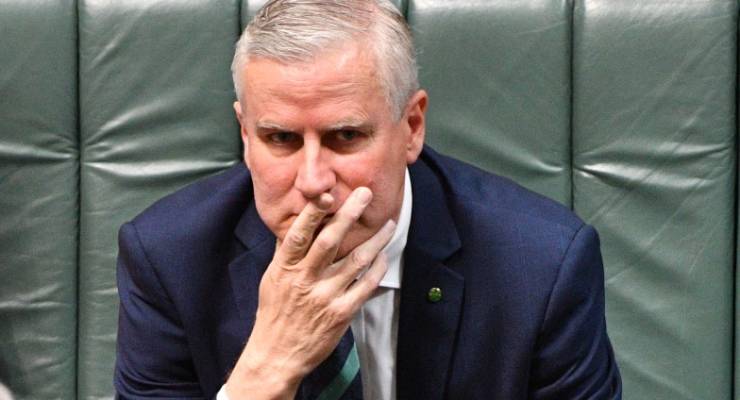
During the Howard government’s repeated attempts to change Australia’s media ownership laws during the 2000s, the Nationals played a key role in trying to protect regional media.
They’d watched as aggregation had established regional television licensees as clones of the major metropolitan networks, usually with only the long-term incumbent broadcaster investing in local journalism to ensure regional TV news bulletins covered local stories.
They’d watched as regional radio licences had been bought up and content networked from metropolitan centres, cutting local stories and local presenters.
They’d watched as regional newspapers cut back in the face of long-term decline and the arrival of the internet.
Much of their concern was self-interested. As politicians, the Nationals wanted to see lots of microphones and cameras whenever they gave a media conference in their local communities. They wanted their announcements written up by local journalists and appear on local news bulletins.
But it also meant that they understood the stakes when it came to regional media, which from the 1990s became an increasingly marginal business even when not beset by drought and floods.
Queensland MP Paul Neville, who passed away in January last year, became a kind of alternate minister for communications in the Howard years, using his chairmanship of both transport and communications committees to undertake major reports in those areas, including the key Local Voices report into regional radio in 2001.
Neville was the Nats MP from central casting, but also a link to a different, less partisan era of politics; he credited Labor’s Peter Morris as a key figure in mentoring him on transport issues.
When the Howard government sought to use its control of the Senate to overhaul media ownership in 2006, the Nationals in effect delegated their role to Neville. He virtually dictated large slabs of the bill relating to regional radio, establishing both local news content rules and local presence requirements aimed at preventing cuts to on-the-ground staffing following mergers.
Some of the requirements proved unworkable and had to be wound back by Labor after 2007, but Neville was determined to protect local media resourcing from the impacts of ownership changes.
How times have changed. The Nationals are now led by a former newspaper editor. But they have been conspicuously silent as News Corp and Nine have shuttered Australian Associated Press.
AAP is a key source of local journalism that major media outlets no longer have the staff to provide, and a key source of content not just for media rivals of News Corp and Nine, but for regional newspapers.
AAP’s cessation in June will present a major challenge for regional newspapers, especially those no longer controlled by News Corp or Fairfax.
Nine sold off Fairfax’s regional newspaper collection last year to Anthony Catalano. The deeply troubled Seven West Media — current share price 15 cents — took control from News Corp of a number of Western Australian local papers last year. Operating in much smaller markets, regional papers face even more pressure than metropolitan and national papers, even in buoyant economic times.
As radio licensees further network content and local television licensees, beset by the same shrinking advertising markets, slash news coverage, local papers become the last source of local voices and local coverage.
It’s a major public interest issue for those communities: corruption in local councils, crime and drug problems, poor infrastructure and poor access to services are as much or more of an issue for regional communities as they are in cities.
It’s hard to believe Paul Neville would have been silent about the impacts of the closure of AAP, or the complete indifference of the government to it.
Like a true Country Party member, Neville was eager to intervene where he saw markets failing to deliver for local communities.
The current generation of Nationals MPs — including Barnaby Joyce who opposed the 2006 laws and crossed the floor — seem to have lost touch with what should be core business for them.








His replacement is too busy imposing centralised income management on his constituents to bother with things like the public interest. Nats are worthless.
The Nationals have been MIA for many years in terms of anything that helps their supposed core constituents. Big irrigators, coal mining companies, clearfelling and CSG companies, are their only interest.
It is so sad – regional towns could be the last remaining redoubts of local newspapers as they were/could remain local papers for local people instead of the barely differentiated pabulum consumed unthinkingly in the cities.